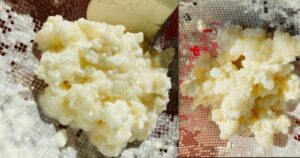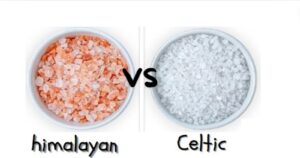Kefir protein refers to the proteins present in kefir, a fermented milk drink that is made using kefir grains.These proteins come primarily from the milk used in making kefir and are modified by the fermentation process.
Kefir Protein is composed of Casein and Whey Proteins. Casein this is the primary protein in milk and makes up about 80% of the protein content in kefir. Casein is a slow-digesting protein that provides a sustained release of amino acids. The remaining 20% is whey protein, which is a fast-digesting protein and is quickly absorbed by the body.
What is the Composition of kefir protein

Kefir protein is a component of kefir, a fermented milk beverage made by fermenting milk with kefir grains. Kefir grains are a combination of lactic acid bacteria, yeast, and polysaccharides. Here’s a detailed look at kefir protein:
Composition of Kefir Protein
- Casein and Whey Proteins:
- Casein: This is the primary protein in milk and makes up about 80% of the protein content in kefir. Casein is a slow-digesting protein that provides a sustained release of amino acids.
- Whey: The remaining 20% is whey protein, which is a fast-digesting protein and is quickly absorbed by the body.
- Bioactive Peptides:
- During the fermentation process, the proteins in milk are broken down by enzymes produced by the bacteria and yeast in kefir grains. This process generates bioactive peptides, which can have various health benefits, including antimicrobial, antioxidant, and anti-inflammatory properties.
- Amino Acid Profile:
- Kefir contains all nine essential amino acids that the body cannot produce on its own. These include histidine, isoleucine, leucine, lysine, methionine, phenylalanine, threonine, tryptophan, and valine. The presence of these essential amino acids makes kefir a complete protein source.
Health Benefits of Kefir Protein
- Digestibility:
- The fermentation process makes the protein in kefir easier to digest compared to regular milk. This is beneficial for individuals with lactose intolerance or those who have difficulty digesting milk proteins.
- Immune System Support:
- The bioactive peptides and probiotics in kefir can enhance the immune system by promoting gut health and producing substances that have antibacterial and antiviral properties.
- Muscle Recovery and Growth:
- The high-quality protein in kefir supports muscle repair and growth. The combination of casein and whey provides both immediate and sustained protein delivery to muscles.
- Weight Management:
- Protein in kefir can help with weight management by promoting satiety, which can reduce overall calorie intake.

Nutritional Profile of Kefir
- Calories: Approximately 110-150 kcal per cup (240 ml), depending on the fat content of the milk used.
- Protein: About 8-11 grams per cup.
- Fat: Varies depending on the type of milk (non-fat, low-fat, or whole milk).
- Carbohydrates: Around 8-12 grams per cup, mainly from lactose, which is partially fermented during the kefir-making process.
- Probiotics: Kefir contains a diverse range of beneficial bacteria and yeast, which can contribute to gut health.
Kefir protein is a high-quality, easily digestible protein source that offers various health benefits. Its combination of casein and whey proteins, along with the bioactive peptides formed during fermentation, makes it a nutritious addition to the diet. Regular consumption of kefir can support muscle growth, immune function, and overall health.
Medical conditions where kefir protein might be contraindicated or require caution
Lactose Intolerance: While kefir is lower in lactose than regular milk, it still contains some lactose, which can cause discomfort for those who are highly sensitive.
Milk Allergy: Individuals with a milk allergy should avoid milk-based kefir, as it contains proteins like casein and whey that can trigger allergic reactions.
Histamine Intolerance: Kefir is a fermented product and can contain high levels of histamines, which can be problematic for those with histamine intolerance.
Kidney Disease: High-protein diets can be taxing on the kidneys, so individuals with chronic kidney disease should monitor their protein intake, including from sources like kefir.
Gastrointestinal Disorders: Some people with sensitive gastrointestinal tracts, such as those with irritable bowel syndrome (IBS), might experience discomfort from the probiotics and proteins in kefir.
Phenylketonuria (PKU): PKU is a metabolic disorder where the body cannot break down the amino acid phenylalanine, found in many protein-rich foods, including kefir.
Types of Kefir Protein
- Casein:
- Source: Primary protein in milk kefir.
- Content: Makes up about 80% of the protein content.
- Characteristics: Slow-digesting protein that provides a sustained release of amino acids.
- Whey Protein:
- Source: Also found in milk kefir.
- Content: Makes up about 20% of the protein content.
- Characteristics: Fast-digesting protein, rich in essential amino acids.
- Plant-Based Proteins:
- Source: Found in water kefir.
- Content: Proteins come from the grains themselves and the substrates used for fermentation (e.g., fruits, sugars).
- Characteristics: Varies depending on the ingredients used for fermentation.
Impact of Fermentation on Kefir Protein:
Bioavailability:
- Improved Digestibility: Fermentation breaks down proteins into smaller peptides and amino acids, making them easier for the body to digest and absorb. This process is particularly beneficial for individuals with digestive issues or lactose intolerance.
- Enhanced Absorption: The smaller peptides and amino acids are more readily absorbed in the intestines, increasing the overall bioavailability of proteins. This means the body can use these proteins more effectively for various physiological functions.
Peptides:
- Bioactive Peptides: During fermentation, proteins are broken down into bioactive peptides. These peptides can have several health benefits, including:
- Antimicrobial Properties: Some bioactive peptides can inhibit the growth of harmful bacteria and pathogens, contributing to a healthier gut microbiome and overall immune support.
- Anti-inflammatory Properties: Certain peptides have anti-inflammatory effects, which can help reduce inflammation in the body and potentially alleviate symptoms of inflammatory conditions.
- Antioxidant Properties: Some peptides act as antioxidants, neutralizing free radicals and protecting cells from oxidative damage.
Potential Health Benefits of Bioactive Peptides:
- Immune Support: By enhancing gut health and inhibiting harmful bacteria, bioactive peptides support the immune system.
- Cardiovascular Health: Some peptides can help lower blood pressure and improve cardiovascular health.
- Bone Health: Enhanced absorption of calcium and other minerals due to fermentation can support bone health and reduce the risk of osteoporosis.
- Digestive Health: Improved protein digestibility and the presence of beneficial probiotics promote a healthy digestive system.
Overall, the fermentation process not only enhances the nutritional profile of kefir and yogurt but also introduces beneficial compounds that can contribute to various aspects of health. This makes fermented dairy products a valuable addition to a balanced diet.
How Kefir Protein interacts with commonly Use medication
1. Probiotics: Kefir is rich in probiotics, which can interact with certain medications, especially antibiotics. Antibiotics can kill the beneficial bacteria in kefir, reducing its probiotic benefits. Conversely, consuming kefir can help replenish the gut microbiota after a course of antibiotics.

2. Calcium and Magnesium: Kefir contains minerals like calcium and magnesium, which can bind to certain medications (e.g., some antibiotics like tetracyclines and fluoroquinolones) and reduce their absorption and effectiveness.
3. Lactic Acid: The lactic acid in kefir may interact with medications that affect or are affected by the body’s pH levels.
4. Bioactive Peptides: These peptides can have various effects, including blood pressure modulation. Therefore, consuming kefir might interact with antihypertensive medications, potentially amplifying their effects.
1. Antibiotics:
- Interaction: Antibiotics can kill not only harmful bacteria but also beneficial bacteria, including those found in kefir. This can reduce the probiotic benefits of kefir.
- Advice: Take kefir and antibiotics at different times of the day. For example, if you take antibiotics in the morning, consume kefir in the afternoon or evening. This helps minimize the impact on the probiotic content.
2. Antihypertensives (Blood Pressure Medications):
- Interaction: Kefir contains bioactive peptides that can have a mild blood pressure-lowering effect. This could potentially enhance the effects of antihypertensive medications, leading to an excessive drop in blood pressure.
- Advice: Monitor your blood pressure regularly if you are consuming kefir while on antihypertensive medications. Consult your healthcare provider to adjust your medication dosage if needed.
3. Cholesterol-Lowering Medications (Statins):
- Interaction: Kefir may help lower cholesterol levels due to its probiotic content. This could potentially enhance the effects of cholesterol-lowering medications.
- Advice: Regular monitoring of cholesterol levels is advisable. Discuss with your healthcare provider if any adjustments to medication are necessary.
4. Diabetic Medications:
- Interaction: Kefir can influence blood sugar levels due to its carbohydrate content and the presence of probiotics that might affect glucose metabolism.
- Advice: Monitor blood sugar levels closely when consuming kefir, especially if you are on insulin or other diabetic medications. Adjustments to medication may be necessary based on blood sugar readings. Consult with your healthcare provider for personalized advice.
5. Antifungal Drugs:
- Interaction: There are no well-documented interactions between kefir and antifungal medications. However, as a fermented product, kefir may contain yeast, which could theoretically interact with certain antifungal treatments.
- Advice: If you are being treated for a fungal infection, consult your healthcare provider about consuming kefir. They may advise you on the best course of action based on the specific antifungal medication you are taking.
6. Seizure Medications (Antiepileptics):
Common Antiepileptic Drugs: Examples include valproate, carbamazepine, lamotrigine, and levetiracetam.
- Interaction: There is limited specific information on interactions between kefir and antiepileptic drugs. However, some antiepileptic drugs can affect the gastrointestinal system, which might influence the absorption and effectiveness of probiotics found in kefir.
- Advice: Monitor for any changes in seizure frequency or intensity when introducing kefir into your diet. It’s important to consult your healthcare provider before making dietary changes, as they can provide guidance tailored to your specific medication and condition.
ADHD Medications:
Common ADHD Medications: Examples include stimulant medications like methylphenidate (Ritalin) and amphetamines (Adderall), as well as non-stimulant medications like atomoxetine (Strattera) and guanfacine.
- Stimulant Medications:
- Interaction: Stimulant medications are generally absorbed in the gastrointestinal tract, and any significant changes in gut flora or gastrointestinal health (such as those potentially influenced by kefir) could theoretically affect drug absorption. However, there is no direct evidence suggesting a significant interaction.
- Advice: Monitor for any changes in the effectiveness of the medication or any side effects. As with any dietary change, discuss with your healthcare provider, especially if you notice any changes in symptoms or medication effectiveness.
- Non-Stimulant Medications:
- Interaction: Similar to stimulants, the absorption and effectiveness of non-stimulant medications could potentially be influenced by changes in gut health. However, specific interactions with kefir are not well-documented.
- Advice: Again, monitoring and consultation with a healthcare provider are crucial. They can provide specific recommendations based on your medication and health status.
General tips when taking medication with Kefir Protein
Antibiotics: Take antibiotics and kefir at different times of the day to avoid interaction.
Consult Healthcare Providers: Always consult with a healthcare provider or pharmacist regarding the consumption of kefir when on medication, especially if you are on chronic medication or have specific health conditions. if you are on medication for chronic conditions like epilepsy or ADHD.
Monitor for Reactions: Be observant of any unusual reactions when combining kefir with medications, and report them to your healthcare provider.
Consistent Routine: Try to maintain a consistent routine with both your medication and kefir consumption, and avoid making abrupt changes.
Guidelines for Managing Special Diets
Kefir, both milk and water varieties, can be a versatile addition to various special diets. Here are some considerations for incorporating kefir into specific dietary needs:
Lactose Intolerance
Milk Kefir:
- The fermentation process in milk kefir significantly reduces the lactose content. The probiotics in kefir can help break down lactose, making it easier for lactose-intolerant individuals to digest.
- However, tolerance levels can vary among individuals, so it’s advisable to start with small amounts and observe how your body responds.
Water Kefir:
- Completely lactose-free, making it an excellent alternative for those who are lactose intolerant or prefer to avoid dairy altogether.
- Offers a refreshing, slightly tangy beverage that’s rich in probiotics without the dairy content.
Vegan and Plant-Based Diets
Water Kefir:

- A suitable option for vegans and those on plant-based diets as it contains no animal products.
- Provides probiotics, though its protein content is lower compared to milk kefir.
Milk Kefir Alternatives:
- For those who prefer the texture and taste of milk kefir but are vegan, there are plant-based milk kefirs available made from coconut, almond, soy, or other plant-based milks.
- These alternatives can be cultured with kefir grains similarly to dairy milk, offering a vegan-friendly probiotic-rich beverage.
Nutritional Considerations
- Protein Content: Milk kefir tends to have higher protein content compared to water kefir, which might be a consideration for those looking to increase their protein intake.
- Sugar Content: Both types of kefir can contain varying levels of sugar depending on the recipe and fermentation time. It’s essential to monitor sugar content, especially for those with dietary restrictions related to sugar intake.
- Probiotics: Both milk and water kefir are rich in probiotics, but the specific strains may vary. Including a variety of fermented foods in your diet can help diversify your gut microbiota.

Tips for Incorporating Kefir into your diet
- Gradual Introduction: Start with small amounts and gradually increase to allow your digestive system to adapt.
- Homemade vs. Store-Bought: Homemade kefir can offer more control over ingredients and fermentation time, allowing you to customize it to your dietary needs.
- Flavor Variations: Experiment with adding fruits, herbs, and spices to enhance the flavor of kefir while adhering to your dietary preferences.
By considering these factors, kefir can be a valuable addition to various special diets, offering probiotic benefits and versatility in both milk and water forms.
Protein quality of kefir
The protein quality of kefir, focusing on its Biological Value (BV) and Protein Digestibility Corrected Amino Acid Score (PDCAAS).
Biological Value (BV) of Kefir Proteins
- Definition: Biological Value is a measure of how efficiently the body can utilize a consumed protein. It is a reflection of the proportion of absorbed protein from a food that becomes incorporated into the proteins of the organism’s body.
- Kefir’s BV: Kefir proteins have a high biological value, which means that the proteins found in kefir are efficiently used by the body. This high BV is due to kefir containing a balanced profile of essential amino acids, which are necessary for the body’s protein synthesis processes.

Protein Digestibility Corrected Amino Acid Score (PDCAAS)
The protein quality of kefir, focusing on its Biological Value (BV) and Protein Digestibility Corrected Amino Acid Score (PDCAAS).
Biological Value (BV) of Kefir Proteins
- Definition: PDCAAS is a method of evaluating the quality of a protein based on both the amino acid requirements of humans and their ability to digest it. It takes into account the essential amino acids content and the digestibility of the protein.
- Scale: The PDCAAS score ranges from 0 to 1, with 1 being the highest possible score, indicating that the protein provides all essential amino acids in the proportions needed by humans and is highly digestible.
- Kefir’s PDCAAS: Kefir scores high on the PDCAAS scale. This high score means kefir provides all essential amino acids in the right proportions and is easily digested by the body. This makes kefir an excellent source of high-quality protein, particularly beneficial for those looking to maintain or build muscle mass, support immune function, and promote overall health.
Essential Amino Acids in Kefir
| Amino Acid | Function |
|---|---|
| Histidine | Important for growth and tissue repair. |
| Isoleucine | Needed for muscle metabolism and energy production. |
| Leucine | Critical for protein synthesis and muscle repair. |
| Lysine | Necessary for growth, tissue repair, and the production of hormones, enzymes, and antibodies. |
| Methionine | Important for metabolism and detoxification. |
| Phenylalanine | Precursor for neurotransmitters and other amino acids. |
| Threonine | Plays a role in fat metabolism and immune function. |
| Tryptophan | Precursor for serotonin, which affects mood and sleep. |
| Valine | Important for energy production and muscle repa |
- Kefir is not only high in essential amino acids but is also highly digestible, thanks to its fermentation process. The fermentation process breaks down some of the proteins into simpler forms, making them easier for the body to absorb.
- The presence of beneficial probiotics in kefir also enhances digestive health, which can further improve the body’s ability to absorb and utilize the nutrients found in kefir.
Digestibility
Kefir is a nutritionally rich food with high-quality proteins that are efficiently utilized by the body. Its high Biological Value and PDCAAS make it an excellent protein source, particularly valuable for maintaining muscle mass, supporting the immune system, and overall health. Including kefir in the diet can contribute significantly to meeting daily protein and essential amino acid requirements.

Proper storage methods to preserve the protein quality in kefir.
To preserve the protein quality in kefir, it’s important to store it properly. Here are detailed steps to ensure your kefir maintains its protein quality and overall freshness:
Storage Methods for Kefir
1. Refrigeration
- Temperature: Store kefir in the refrigerator at a temperature between 34°F and 40°F (1°C to 4°C).
- Container: Use an airtight container to prevent contamination and to minimize exposure to air, which can affect the quality of the proteins.
- Duration: Kefir can be stored in the refrigerator for up to two weeks. Over time, the texture and flavor may change, but the protein quality should remain intact within this period.
2. Freezing
- Preparation: Pour the kefir into an airtight, freezer-safe container. Leave some space at the top, as kefir will expand when frozen.
- Temperature: Set your freezer to 0°F (-18°C) or lower.
- Duration: Kefir can be stored in the freezer for up to three months. Freezing can alter the texture, but the protein quality will be preserved.
- Thawing: Thaw kefir in the refrigerator overnight. Do not use a microwave or hot water to thaw, as this can denature the proteins.
Additional Tips
1. Minimize Light Exposure
- Container Choice: Use opaque containers or store kefir in a dark part of the refrigerator to minimize exposure to light, which can degrade proteins and other nutrients.
2. Avoid Contamination
- Hygiene: Always use clean utensils when handling kefir to prevent introducing bacteria or mold, which can compromise protein quality.
- Seal Properly: Ensure the container is sealed tightly after each use to prevent exposure to air and contaminants.
3. Consume Fresh
- Freshness: The sooner you consume your kefir, the better its protein quality and overall nutritional value will be. Try to consume it within the first week for the best quality.
4. Stir Before Use
- Consistency: If kefir separates, which can happen during storage, simply stir it before use to ensure an even distribution of proteins and other components.
Questions people ask about kefir protein along with their answers:
1. How much protein is in kefir?
Answer: The protein content in kefir can vary depending on the type of milk used and the fermentation process. On average, a one-cup serving (about 240 ml) of plain milk kefir contains around 8-11 grams of protein. Water kefir, however, typically has negligible protein content as it is made from sugar water and not milk.
2. Is the protein in kefir a complete protein?
Answer: Yes, the protein in milk kefir is considered a complete protein. This means it contains all nine essential amino acids that the human body cannot produce on its own. These essential amino acids are crucial for various bodily functions, including muscle repair and growth, enzyme production, and hormone regulation.
3. Can kefir be a good protein source for athletes and bodybuilders?
Answer: Yes, kefir can be a good protein source for athletes and bodybuilders.
It provides high-quality protein along with other nutrients like calcium, vitamin D, and probiotics, which are beneficial for muscle recovery, bone health, and overall gut health. However, it’s important to consider it as part of a balanced diet to meet overall protein needs.
4. How does the protein content in kefir compare to other dairy products?
Answer: Kefir’s protein content is comparable to that of milk and yogurt. A typical serving of plain milk kefir has around 8-11 grams of protein, similar to a serving of regular milk (8 grams per cup) and slightly less than Greek yogurt (around 15 grams per cup).
However, kefir offers the added benefit of probiotics which are not always present in other dairy products.
5. Is kefir a suitable protein source for people with lactose intolerance?
Answer: Kefir can be a suitable protein source for many people with lactose intolerance. The fermentation process breaks down a significant amount of lactose, making it easier to digest. Some people with lactose intolerance find they can tolerate kefir better than regular milk.
However, tolerance levels can vary, so it’s best to start with a small amount to see how your body reacts. Additionally, non-dairy kefir options made from coconut milk, almond milk, or other plant-based milks are available, but they typically contain less protein than dairy-based kefir.
Resources
https://my.clevelandclinic.org/health/articles/22243-amino-acids









